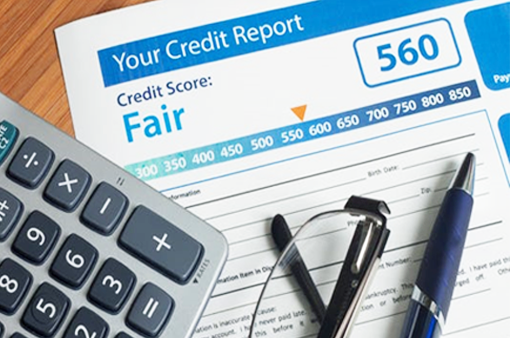
Did you know that errors lurking in your credit report could throw a wrench into your financial plans? Every year, countless people discover inaccuracies in their credit reports, and it’s consistently the top grievance filed with the Consumer Financial Protection Bureau (CFPB). Roughly 13% of consumers within the U.S. have discrepancies within their credit reports that can affect their credit scores with errors serious enough to cause credit denials or higher interest rates.
How to avoid credit report errors
Your credit report acts as a financial report card so keeping it in check with these three bureaus – Equifax, TransUnion or Experian, is crucial.
Conduct a regular review: Make it a routine to review your credit report every few months for any discrepancies regarding payment history, how much credit you have and use, and other inquiries. Spot an error? Take swift action with the credit bureaus by reaching out and getting the error corrected.
Enroll in My Credit Rx: Within the NIHFCU online banking app, My Credit Rx is your daily dose of credit awareness allowing you to examine your credit report, monitor your credit score, and receive credit monitoring notifications regarding your credit status. You can also dispute errors in My Credit Rx.
Implement a credit freeze: Ever heard of putting your credit on ice? It’s a savvy move to prevent identity thieves from opening accounts in your name. Simply visit the websites of the major credit bureaus, login, and initiate a freeze. Just remember to thaw it by unfreezing your credit when you need to apply for a loan.
How to resolve credit report mistakes
After you’ve reviewed your credit report, you can dispute any inaccuracies. Here is an action plan to notify the credit bureaus so that you can have the error corrected. Note that they are obligated to respond within 30 days.
Notify all three credit bureaus: Since each credit bureau maintains its own records, it’s essential to notify all three if you identify an error. This ensures they give your dispute the attention it deserves so they can adhere to regulatory timelines.
Provide backup information: If you’re contesting a mistake, back up your claim with documentation such as bank statements or payment records. This strengthens your case and increases the likelihood of a favorable resolution.
Document communications: Craft a detailed letter outlining the issue and send it via certified mail. This helps you keep track of communications and ensures the credit bureaus fulfill their obligations.
Resolution denied? Don’t despair: You can escalate your complaint to the Consumer Financial Protection Bureau, which serves as a watchdog for consumer financial issues.
Add a note to your report: Even if the credit bureaus don’t rectify all errors, you can append a note to your credit report explaining the situation. While it won’t erase the errors, it provides context for anyone reviewing your report.
By staying vigilant with your credit report and taking prompt action when discrepancies arise, you’re proactively managing your financial well-being!
Resource:
Consumer Reports


